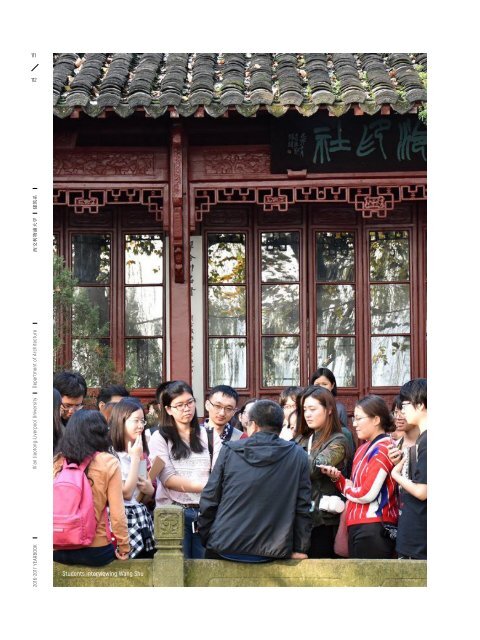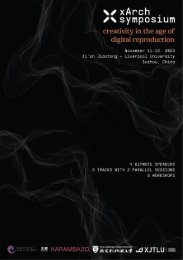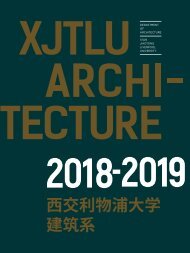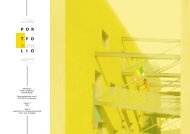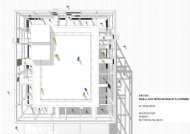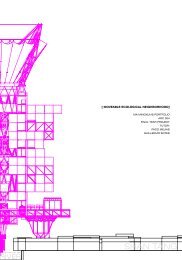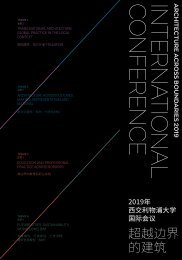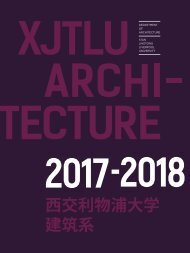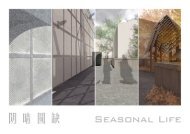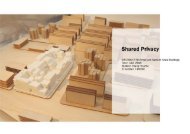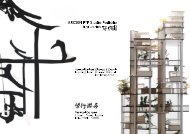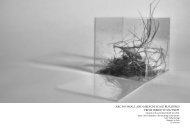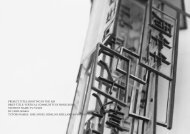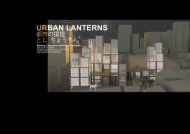YEARBOOK 2016 - 2017 | XJTLU DEPARTMENT OF ARCHITECTURE
The fourth edition of the yearbook of the Department of Architecture at Xi'an Jiaotong-Liverpool University presents student works created during the academic year 2016 - 2017. The yearbook exemplifies the new model for Chinese architectural education for which the department was commended by the Royal Institute of British Architects (RIBA). It is thus also a showcase of the creative culture that has guided our students in taking first steps to successful international careers as responsible and creative architectural designers. XJTLU offers RIBA Part 1, 2 and 3.
The fourth edition of the yearbook of the Department of Architecture at Xi'an Jiaotong-Liverpool University presents student works created during the academic year 2016 - 2017. The yearbook exemplifies the new model for Chinese architectural education for which the department was commended by the Royal Institute of British Architects (RIBA). It is thus also a showcase of the creative culture that has guided our students in taking first steps to successful international careers as responsible and creative architectural designers. XJTLU offers RIBA Part 1, 2 and 3.
You also want an ePaper? Increase the reach of your titles
YUMPU automatically turns print PDFs into web optimized ePapers that Google loves.
111<br />
112<br />
ARC303<br />
Architectural Theory<br />
<strong>2016</strong>-<strong>2017</strong> <strong>YEARBOOK</strong> Xi’an Jiaotong-Liverpool University Department of Architecture 西 交 利 物 浦 大 学 建 筑 系<br />
Students interviewing Wang Shu<br />
Level 3<br />
( Year 4 | Semester 1 )<br />
Module Credits<br />
5<br />
Module Leader<br />
Christian Gänshirt<br />
Teaching Team<br />
Jiawen Han<br />
Jessie Cannady (Language Center)<br />
Number of Students<br />
51<br />
Architectural Theory critically reflects on written discourses in and<br />
about architecture. A series of lectures, accompanied by weekly readings<br />
and alternating between a Chinese and a European point of view,<br />
introduce the students to the main concepts of architectural theory,<br />
and provide a framework for the understanding of on-going discourses<br />
in the field. The themes and topics of the lectures address historical<br />
debates, including the role and development of theory in architecture,<br />
the question of style, and the historical foundations of modernity, and<br />
also encompass areas such as criticism of high modernism, the rise<br />
of postmodern and post-structural theory, critical regionalism and<br />
architectural criticism, as well as to contemporary discourses, and the<br />
mutual influence of Asian and Western concepts of architecture.<br />
Further areas of dialogue and debate respond to interest articulated by<br />
students and/or faculty members. Two research seminars accompany<br />
the lectures, of which the students chose one, with the themes and<br />
topics varying from year to year. The main task in the seminars is for<br />
the students to conduct their own research within the given thematic<br />
framework, to present and discuss their individual research in one of the<br />
seminar sessions, and to eventually write and submit an essay on their<br />
chosen topic. To enhance their research and academic writing skills,<br />
the students receive in-class instructions, individual tutorials, as well<br />
as lectures and continuous support from the language centre. A final<br />
written exam stimulates the students to rethink what they have learned<br />
throughout this course.<br />
Level 03 – Year 4<br />
B Eng Architecture Programme


